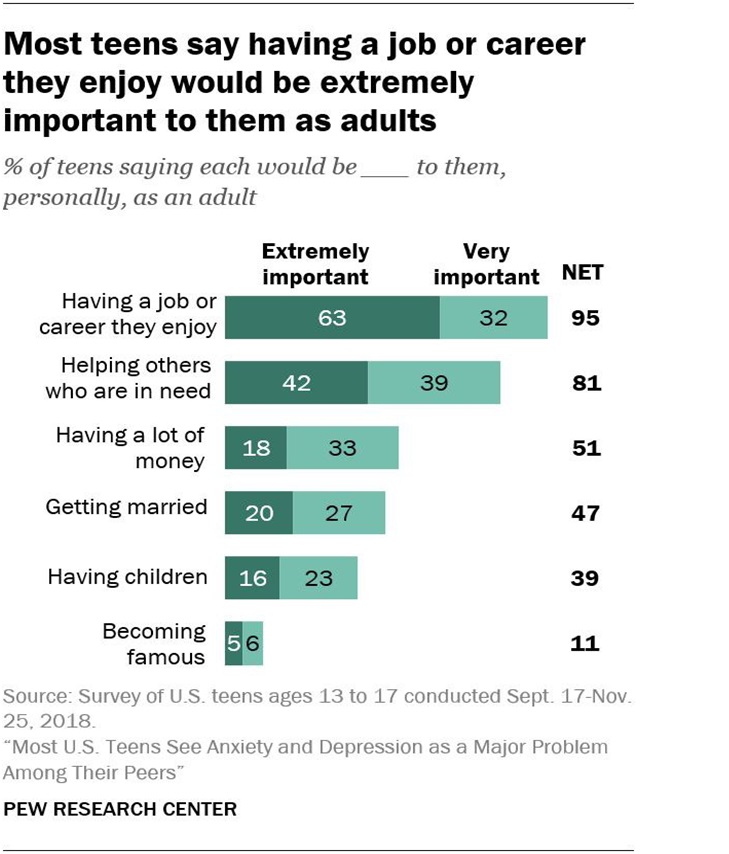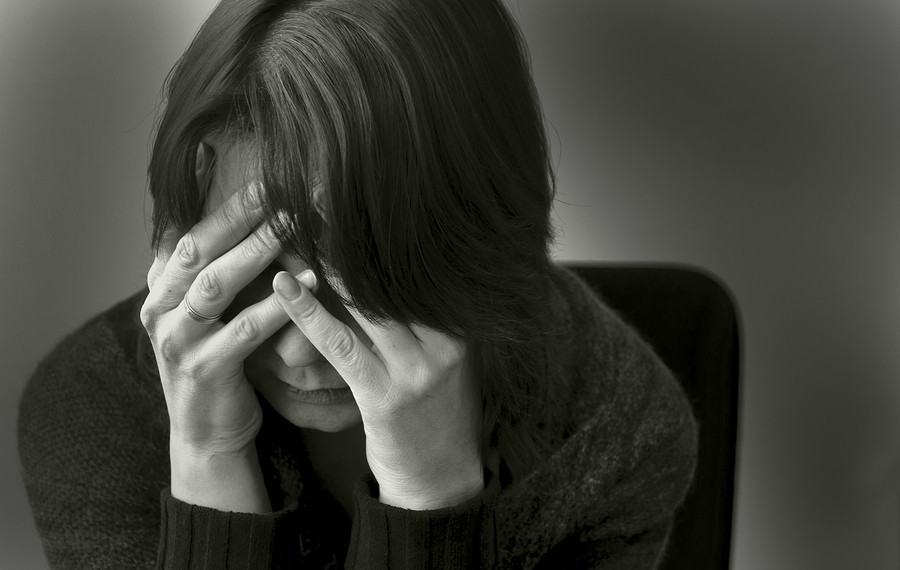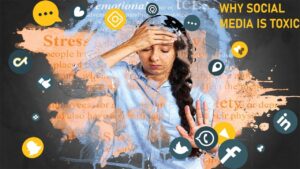DR. Aastha Bhardwaj
Consider your feelings of hopelessness as a mood weather report. Monday and Tuesday also have a 100% chance of clouds and showers. You’re stuck in this terrible climate sample, and things don’t seem to be getting any better.
Let’s be clear about one thing: Sadness is not the same thing as depression. Depression is more [i]enduring than occasional feelings of sadness or lack of motivation. It is a serious mood condition with a solid biological basis that can have a detrimental impact on your health and quality of life, as well as the people closest to you.
Table of Contents:-
Some of the causes of Depression:- 2
What are the Signs of Depressive Person?. 5
The Treatment of Depression:- 18
What is Depression?
Depression is a mental illness that results in persistent feelings of dissatisfaction and boredom. It affects how you feel, think, and behave and can result in a variety of mental and physical issues. It is also known as major depressive disorder or clinical depression.

Some of the causes of Depression:-
Numerous factors, including the following, can increase the risk of despair:-
1) Abuse: – You may be more likely to experience depression later in life if you have experienced physical, sexual, or emotional abuse.
2) Age: – Elderly people are more likely to experience despair. Living nearby and experiencing a lack of social support is the two factors that could make that worse. Certain medications, such as the acne prescription isotretinoin, the antiviral agent interferon-alpha, and corticosteroids, can increase your risk of depression.
3) Conflict: – Private conflicts or disagreements with one’s own circle of relatives, friends, or acquaintances can cause depression in a person who is naturally prone to it to take a fatal turn.
Death, a loss, sadness, or grief following a death, or the absence of a loved one can all increase the risk of despair even if these emotions are natural.
4) Gender: – The probability of women developing depression is almost twice as high as that of males. Nobody knows the reason for this. It’s also possible that women’s hormonal changes at particular points in their lives have an impact.
5) Genes: – The danger could also be increased by personal family histories of despair. Given that depression is thought to be a complex feature, several particular genes are expected to exert minor effects on the trait rather than a single gene that increases the likelihood of developing a disease. The genetics of depression, like that of the majority of psychiatric disorders, is not as clear-cut or accurate as it is for hereditary diseases like Huntington’s chorea or cystic fibrosis.
6) Major activities: – Even good things like starting a whole new process, graduating, or getting married might make you depressed. Moving, quitting a job, divorcing, or retiring is also possible. The sickness of scientific despair, however, is not at all only a “natural” reaction to painful life experiences.
7) Other personal issues: – There is a higher risk of serious disease and medical discomfort when people are cut off from their families and social networks and are suffering from one or more mental illnesses. Despair can be brought on by the initial infection or it can be sparked by other disorders.
8) Substance abuse: – A physical or medical condition is present in about 30% of individuals with drug addiction issues. Even if the effects of drugs and alcohol are short-lived, they ultimately cause hopelessness.
What are the Signs of Depressive Person?

There are a variety of mild to severe signs of despair, most of which are species-specific. Common signs include:
- Feeling really depressed and disturbed Depression in children and teenagers can make them appear evil rather than sad and unable to experience the positive emotions that used to make us joyful.
- Fluently becoming irritated or disturbed.
- Eating too much or too little might cause weight growth or loss, respectively.
- Too much difficulties sleeping or staying awaked (hypersomnia).
- Fatigue or a lack of energy
- Unable to focus, generate thoughts, or recall consequences.
- Physical issues like headaches, stomachaches, and sexual dysfunction are frequently experienced.
- Conducting research on tone-detriment or self-murder.
Types of Depression
Common Depression Types-
- Major Depressive Disorder (MDD)
When people use the phrase clinical depression, they typically mean major depressive disorder. (MDD).
It’s a mood disorder with a few key characteristics:-
1) Depressed state
2) Lack of desire in exercising was a common occurrence.
3) Weight changes
4) Sleep changes
3) Weight changes
6) Feelings of worthlessness
7) Difficult concentration
- Patient’s depressive complaint (PDD)
Dysthmia, also known as patient depressed complaint, is a type of chronic depression that occurs more often than not for at least two days. It can range from mild to severe. People may experience brief periods of not feeling depressed, however this respite only lasts two months or less. While the symptoms are not as severe as those associated with major depression, they are pervasive and long-lasting.
Its symptoms includes:-
1) Passion of sadness
2) Loss of interest and pleasure
3) Anger and perversity
4) Guilty feelings
5) Low self-esteem
6) Difficulty falling or staying asleep
7) Sleeping is too crucial
8) Desperation’s Passions
9) Tiredness and a lack of energy
10) Appetite changes
11) Inability to concentrate
Specifics and psychotherapy are regularly used to treat a patient’s depressive complaint.
According to the National Institute of Mental Health, 1.5 percent of adults in the United States have a depressive episode at some point in their lives. The issue affects women (1.9) more than men (1), and researchers estimate that roughly 1.3 of all US adults will have the complaint at some point in their lives.
Adolescent Depression

Teenage depression is a severe internal health problem that makes a patient feel down and uninterested in exercise. It affects how your adolescent thinks, feels, and acts, and it may cause them to experience emotional, functional, and physical problems.
Teens may experience many ups and downs due to peer pressure, academic prospects, and changing bodies. The lows, though, aren’t just passing fancies for some youngsters. They represent a depressive state.
Teenage depression is a serious disorder that requires long-term care and cannot be treated by simply exercising restraint. With medicine and cognitive comforting, the majority of symptoms of adolescent depression become better.
Symptoms:-
The following are some indicators and symptoms of teen depression:-
• Change from the teenager’s prior position and conduct might cause considerable suffering and problems at home, at school, with socialization, or in other areas of life.
Changes in emotion:-
Keep an eye out for any changes in your mood, such as:-
1) Passions associated with sadness, which may include unexplained crying fits.
2) Anger or irrational outbursts of frustration, even over unimportant matters.
3) Feeling emptiness or hopelessness.
4) Unhappy or disturbed attitude.
5) Losing interest in or enjoyment from regular exercise.
6) Loss of interest in or conflict with family and fellow Musketeers.
7) Bad attitude
8) Negative or guilty emotions.
9) Exaggerated tone-blame or tone-review, or a fixation on past mistakes.
10) Acute sensitivity to criticism or failure, as well as an excessive need for comfort.
11) Difficulty concentrating, thinking clearly, making opinions, and recalling recent events.
12) An ongoing sense of hopelessness and depression about life and the future.
13) Studies on suicidality.
Changes in behavior
Behavioral changes, such as:-
1) Exhaustion and fatigue
2) Sleep or vigilance is crucial
3) A change in appetite, such as one that results in weight loss or weight gain (dropped appetite).
4) Consumption of alcohol or drugs
5) Agitation or restlessness, such as pacing, hand-twisting, or the inability to sit still.
6) Slowed thinking, speaking, or physical motions.
7) Restlessness.
8) There have been numerous accounts of unexplained headaches and bodily problems, necessitating maybe regular visits to the academy Croaker.
9) Social isolation
10) Ineffective academic performance or persistent absences from the School.
11) Pay less attention to ones hygiene or appearance.
12) Furious outbursts, obnoxious or dangerous actions, or other acting-out activities that are harmful, such as cutting or burning.
13) Making a self-murder plan or an attempt to suicide.
A study published in the Internal Psychiatry journal found that 3-9% of teenagers at any given moment satisfy the diagnostic criteria for depression, and at the end of the year, as many as 20 youngsters indicate a persistent frequency of depression.
30- to 50 percent of depressed cases do not receive the usual attention from primary care providers.
Young people in America are increasingly afflicted with anxiety and depression, and whether they personally experience these symptoms or not, seven out of ten kids today consider them to be serious issues among their peers. A virtually same percentage of youth from all demographic groups indicate that internal health is a serious problem in their community, cutting across gender, ethnicity, and socioeconomic lines.
Less interested youth express worries about alcoholism, drug abuse, and bullying, yet they still have significant interests in these areas.
According to a Pew Research Center survey of American youths ages 13 to 17, more over 40 percent of them believe that these issues have a significant impact on persons their age in their neighborhood.
Academic pressure is the greatest source of stress for teens. 61% of teenagers report feeling a lot of pressure to do well in school. Comparatively, around 3 in 10 say they experience a lot of pressure to look good(29) and fit in socially(28), while about one in five say they feel pressured to engage in immoral exercise and perform well in sports(28) (21 each). Alcoholism and drug abuse are important issues among persons their age, according to roughly half of teens, although less than 10 % of people claim they experience strong peer pressure to use drugs or consume alcohol (6).
Teenagers are under pressure to perform well in school, at least in part because of their post-graduation goals. 6 out of 10 teenagers (59) report that they intend to enroll in a four-year university when they graduate from high school, and these teenagers are more likely than those with other intentions to report feeling under a lot of pressure to perform well academically.

The majority of youths (61%) and another 27 % both admit to feeling some pressure to achieve well in school.







More Stories
Will we soon become Vishgurus by selling our education and childhood?
Kenya: What I saw at Nairobi will remain unforgettable.
Trinidad trip: Whatever I saw, my heart was filled with pride.